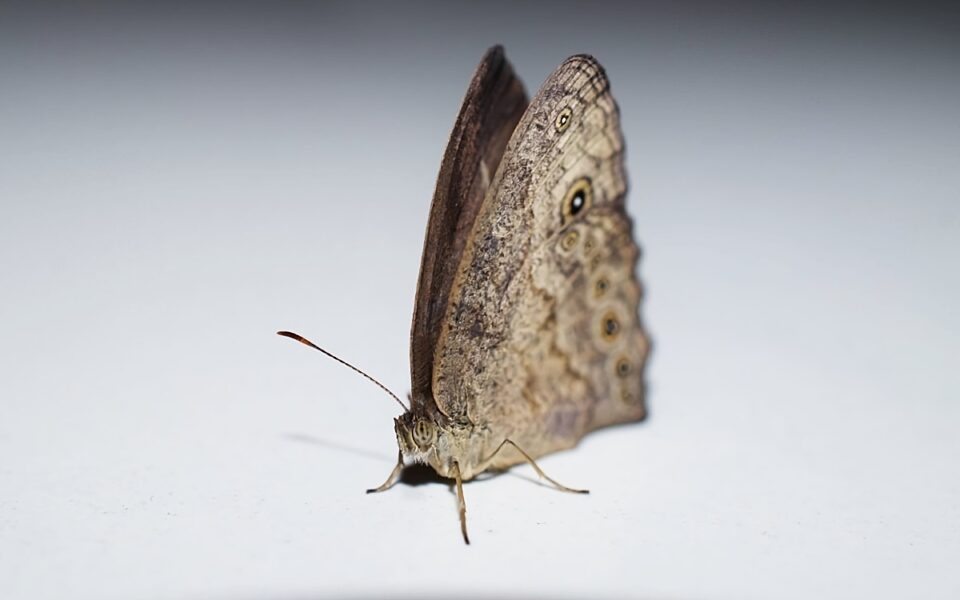
Climate Change Vulnerability in Tropical Butterflies
CBI researchers are using mycalesine butterflies – a taxonomic group found throughout Central Africa – to better understand how tropical species might be impacted by climate change.
Status: Completed
Climate change is already affecting organisms around the globe, altering species distributions, phenology and more. Much of the research showing these changes, however, has been conducted in North America and Europe; how climate change will impact biodiversity in the tropics is less clear.
CBI researchers are using mycalesine butterflies – a taxonomic group found throughout Central Africa – to better understand how tropical species might be impacted by climate change. This project will shed light on habitat’s role in structuring climate change vulnerability, and test the hypothesis that how organisms are adapted to variation in the environment may determine how sensitive they are to climate change.
Specifically, the project will investigate thermal tolerance differences between forest and ecotone populations of mycalesine butterflies, and explore the larger evolutionary context of physiological variation and climate.
This project is led by CBI researcher Timothy Bonebrake of the School of Biological Sciences at the University of Hong Kong. Rachid Hanna, of IITA, and Oskar Brattstrom, of the University of Cambridge, are co-principal investigators. CBI will serve as a primary base for this research. CBI will also facilitate applications of the research in conservation and environmental management efforts in the region.
This project is funded by Hong Kong’s Research Grants Council, via a 1.1 million HKD (about $140,000 in U.S. dollars) General Research Fund grant.